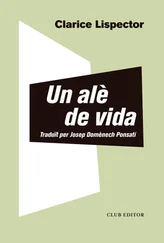— Have you a match by any chance, lady?
I handed him the box and as he returned it, but before he could thank me, without really thinking I said out of habit:
— Don’t mention it.
Whereupon he replied:
— I haven’t thanked you yet. Why did you say ‘Don’t mention it’?
— Oh, it’s not important.
— Excuse me, but it is important. You should have waited until I thanked you before saying ‘Don’t mention it’.
— It really doesn’t matter, I insisted, somewhat surprised.
— Of course it matters. His tone was that of a man defending sacred laws which had suddenly been violated. It was as if he had trodden on dangerous territory. I took a closer look at him, and saw just how little freedom he enjoyed and how much he needed to feel himself imprisoned, and others, too. I then tried to make amends by speaking to him gently:
— Really, young man, it isn’t all that important…
But he was not to be appeased:
— Next time, lady, you wait until you’re thanked.
There was nothing more to be done. His stubborn attitude was beginning to irritate me. For the rest of the journey we did not speak. And if ever there was mute silence, that was it.
LIGHTNING INTERVIEW WITH PABLO NERUDA (II)
— Does writing make the anguish of living more bearable?
— Yes, of course. Exercising your profession, if you enjoy it, is sheer bliss. Otherwise it is sheer hell.
— Who is God?
— Sometimes everybody. Always nothing.
— How can one best describe a human being?
— Political, poetic. And physical.
— What is your idea of a beautiful woman?
— One who embodies many women.
— Write down your favourite poem, that is to say your favourite poem at this very moment.
— I am writing. Can you spare me ten years?
— Where would you like to live if you were not living in Chile?
— You may think me foolish and excessively patriotic, but as I once stated in a poem:
Were I to be born a thousand times over,
This is where I would wish to be born.
Were I to die a thousand times over,
That is where I would wish to die…
— What has been your greatest satisfaction as a writer?
— To be able to read my verses to ordinary people in the remotest places: to miners in the desert regions of Northern Chile, to wool-shearers in the Magellan Straits in a shed smelling of unwashed wool, sweat and solitude.
— Are your moments of creative inspiration preceded by anguish or a state of grace?
— I experience no such feelings. Yet I would not call myself an insensitive person.
— Say something to surprise me.
— 748.
(And he really did surprise me with the unexpected resonance of those numbers.)
— What are your views on contemporary Brazilian poetry? Which of our poets do you prefer?
— I admire Drummond, Vinicius de Morais and your religious poet, Jorge de Lima, who reminds me of Claudel. I am not familiar with the work of younger poets in Brazil, that is to say poets after the generation of Paulo Mendes Campos and Geir Campos. One poem I greatly admire is ‘O Defunto’ [The Deceased] by Pedro Nava. I read it aloud to friends everywhere.
— How do you feel about literature of commitment?
— All literature is committed.
— Which of your own books do you like best?
— The next one.
— Can you explain why readers often refer to you as ‘The Volcano of Latin America’?
— That is news to me. They have probably never experienced a volcano.
— What is your most recent poem?
– ‘Fim do Mundo’ [End of the World]. It is about the twentieth century.
— How does the creative process develop in your case?
— With pen and paper. At least that is the method I follow.
— Do you find reviews by the critics constructive?
— Perhaps for others, but not for the writer.
— Have you ever written a poem to order? Could you compose one now, however short?
— Lots of them. Some of my best poems. Here is the poem you asked for.
— Was the name Neruda accidental or inspired by Jan Neruda, the poet of the Czech freedom movement?
— No one has ever been able to verify this matter.
— What is the most important thing in the world?
— To try and make the world a worthy place for everyone, not just for the privileged few.
— What do you desire most of all for yourself?
— That depends on the hour of the day.
— What is love? Any type of love?
— The best definition is simply: Love is love.
— Have you suffered much for love?
— I am prepared to suffer even more.
— How long would you like to spend here in Brazil?
— A year, but much depends on my work.
And thus ended my interview with Pablo Neruda. I wish he had been prepared to say more. I could have carried on almost indefinitely even if only to be given the briefest of replies. He offered me a copy of his book: Cien sonetos de amor [One Hundred Love Sonnets]. And after writing my name he wrote: ‘From your friend Pablo’. I, too, felt that we could have become close friends in more favourable circumstances. On the back cover of his book, the blurb says: ‘Everything is manifest with an aura of innocent, pagan sensuality: love is seen as man’s vocation and poetry as his mission.’
Those words sum up the essential qualities of Pablo Neruda.
A friend of mine once remarked that there is something of the charlatan in all of us. I had to agree. I can feel the charlatan inside me, haunting me. Without getting the better of me, firstly because it is not really true, secondly because I am almost sickened by my basic honesty. There is another thing which haunts me and makes me smile: bad taste. Oh, how tempted I feel to give in to bad taste. In what way? Well, here there is plenty of scope, endless scope. It can be anything from saying the wrong thing at the worst possible moment to uttering words of great beauty and truth which catch the other person off guard and leave him speechless. In what other way? Well, the way one dresses, for example. Not simply by overdressing. I cannot describe it but know exactly what I mean by dressing in bad taste. And when it comes to writing? Here there are great temptations because the dividing line between bad taste and truth is almost imperceptible. In writing, moreover, there is an accepted standard of good taste which is actually much worse than bad taste. Just to amuse myself or, as a simple experiment, I sometimes walk that thin line between the two.
Have I ever been a charlatan? Yes, indeed I have, while believing in all sincerity that I was doing the right thing. For example, I graduated in law, thus deceiving myself and others. Perhaps myself rather than others. Yet in all sincerity I decided to study law in the hope of reforming the Brazilian penal system one day.
The charlatan sells himself short. What was I about to say? It was on the tip of my tongue, but has now escaped me. Does the charlatan harm himself? That I do not know, but what is certain is that charlatanism can be very harmful. It disrupts the most solemn moments. It makes you wish you did not exist just when you exist at your most powerful. Alas, I cannot dwell too long on this subject.
Someone told me that a certain critic had described Guimarães Rosa and me as a couple of imposters, in other words, as a couple of charlatans. The critic in question won’t understand a word of what I am saying here. For I am speaking of something very profound even if it appears otherwise and I give the impression of toying a little sadly with the subject.
Читать дальше












